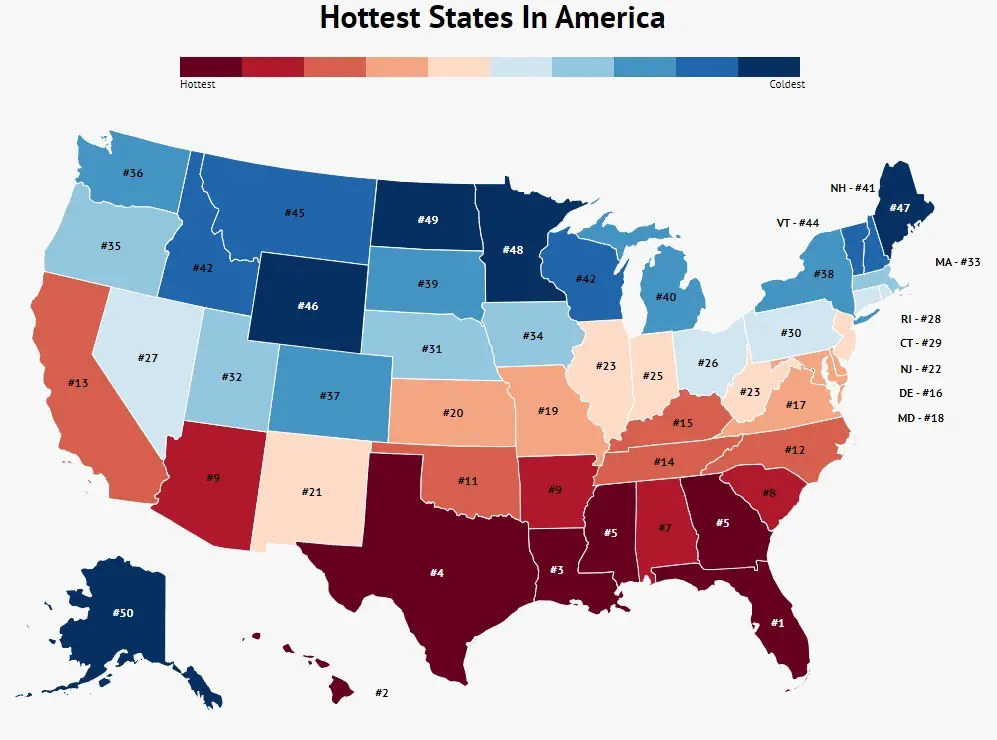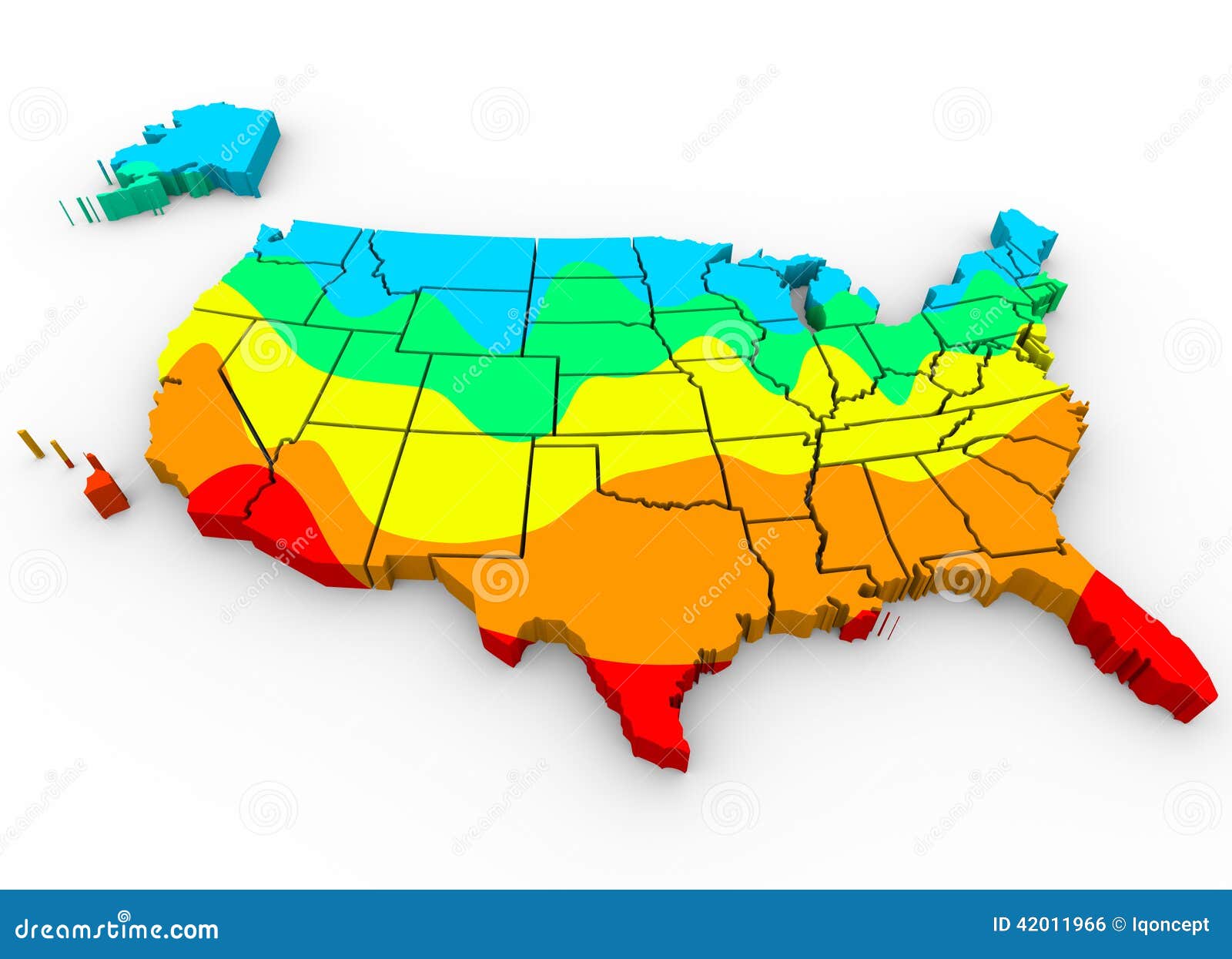What Is The Hottest State In The United States? Unveiling The Heatwave Secrets
Ever wondered which state holds the crown for being the hottest in the United States? If you’re into extreme weather, scorching temperatures, or just plain curious about the hottest corners of America, you’ve landed in the right spot. The United States is a vast land with diverse climates, but some states really take the heat to another level. So, buckle up because we’re about to dive deep into the fiery world of America’s hottest state!
Now, you might be thinking, "Is it Arizona with its blazing deserts? Or maybe Florida with its humid summers?" Well, we’ll get to all that and more. But first, let’s set the stage. Understanding the hottest state in the U.S. isn’t just about bragging rights; it’s about survival tips, climate patterns, and how people adapt to living in extreme conditions. Stick around, and we’ll uncover the truth together.
Before we jump into the nitty-gritty details, let’s talk about why this matters. Knowing which state is the hottest can help you plan vacations, understand climate change impacts, or even decide where to settle down. So, whether you love the heat or prefer cooler climates, this article’s got you covered. Let’s roll!
Read also:Unveiling The Potential Of Sotwe Turk Ifsa
Understanding the Hottest State
Alright, let’s break it down. When we talk about the hottest state in the U.S., we’re not just throwing around random guesses here. There’s actual science behind it. Meteorologists and climate experts study temperature records, heatwaves, and climate patterns to determine which state truly reigns supreme in the heat department.
Key Factors That Define Heat
But hold up—what makes a state “hot”? It’s not just about the thermometer reading. Several factors come into play:
- Average annual temperatures
- Record-breaking heatwaves
- Humidity levels
- Geographical location
For instance, Arizona might have blazing desert heat, but Florida’s humidity can make it feel even hotter. It’s like comparing a dry oven to a steam room. Both are hot, but in different ways.
Top Contenders for the Hottest State
Now, let’s meet the contenders. There are a few states that consistently pop up when we talk about extreme heat. Here’s a quick rundown:
Arizona: The Desert Dynamo
Arizona is famous for its desert landscapes and scorching temperatures. The state holds the record for the highest temperature ever recorded in the U.S., with a blistering 128°F (53°C) in Lake Havasu City. Yeah, that’s some serious heat right there.
Florida: The Sunshine State
Florida might not have the highest recorded temperatures, but its humidity can make it feel like you’re living in a sauna. The combination of high temperatures and high humidity creates what’s called the “heat index,” which can make it feel much hotter than it actually is.
Read also:Discovering The Most Dangerous Zodiac Sign When Angry Unveiling Astrological Insights
California: The Golden Heat
California’s Death Valley is notorious for its extreme heat. In fact, it holds the record for the highest air temperature ever recorded on Earth—134°F (56.7°C) in 1913. So, yeah, California’s got some serious heat credentials too.
The Data Speaks: Which State is the Hottest?
Let’s cut to the chase. Based on scientific data and climate records, the hottest state in the United States is… drumroll please… Arizona! But wait, don’t start packing your bags just yet. There’s more to this story than meets the eye.
Arizona’s Heatwave Records
Arizona’s desert climate makes it a powerhouse when it comes to heat. The state experiences long, hot summers with temperatures regularly exceeding 100°F (37.8°C). Cities like Phoenix and Tucson are no strangers to triple-digit heat. But what sets Arizona apart is its dry heat, which can be more bearable than the sticky humidity of other states.
Florida’s Humid Heat
While Arizona might win the temperature battle, Florida’s humid heat is no joke. The state’s subtropical climate means it’s hot and sticky year-round. Summers in Florida are characterized by high temperatures and high humidity, creating a heat index that often exceeds 100°F (37.8°C).
Climate Patterns and Heatwaves
Understanding climate patterns is key to grasping why certain states are hotter than others. Heatwaves are becoming more frequent and intense due to climate change, and some states are feeling the brunt of it more than others.
Global Warming and Extreme Heat
Climate change is playing a significant role in rising temperatures across the globe. The United States is no exception. States like Arizona, Florida, and California are experiencing more frequent and intense heatwaves, which pose serious health risks to residents.
Adapting to Extreme Heat
Living in a hot state requires some serious adaptation. From air conditioning to water conservation, residents have developed strategies to cope with the extreme heat. Cities are also investing in infrastructure to make urban areas more heat-resistant, such as planting more trees and using heat-reflective materials in construction.
Health Impacts of Extreme Heat
Extreme heat isn’t just uncomfortable; it can be dangerous. Heat-related illnesses like heat exhaustion and heatstroke are serious health concerns, especially for vulnerable populations like the elderly and young children.
Staying Safe in the Heat
Here are some tips to stay safe during extreme heat:
- Stay hydrated by drinking plenty of water
- Avoid outdoor activities during the hottest parts of the day
- Wear lightweight, loose-fitting clothing
- Use sunscreen to protect your skin from harmful UV rays
These simple steps can make a big difference in staying safe and healthy during heatwaves.
Economic Impacts of Extreme Heat
Extreme heat doesn’t just affect human health; it also has significant economic impacts. From increased energy costs to reduced agricultural productivity, the effects of heatwaves can be felt across various sectors.
Energy Consumption
As temperatures rise, so does the demand for air conditioning. This leads to higher energy consumption and increased utility bills for households and businesses. In states like Arizona and Florida, energy costs can skyrocket during the summer months.
Agricultural Challenges
Extreme heat can also impact agriculture. Crops may struggle to grow in excessively hot conditions, leading to reduced yields and higher food prices. Farmers in hot states are constantly adapting their practices to mitigate the effects of extreme heat.
Future Projections and Climate Change
Looking ahead, climate change is expected to make extreme heat even more common in the United States. States that are already hot are likely to get hotter, and heatwaves are expected to become more frequent and intense.
What Can We Do?
Combatting climate change requires collective action. From reducing greenhouse gas emissions to investing in renewable energy, there are steps we can take to mitigate the effects of global warming. Individuals can also make a difference by adopting more sustainable practices in their daily lives.
Conclusion: Embracing the Heat
So, there you have it—the hottest state in the United States is Arizona, but Florida and California are close contenders. Whether you love the heat or prefer cooler climates, understanding the factors that contribute to extreme heat is essential. From adapting to living in hot conditions to addressing the broader issue of climate change, there’s a lot we can do to make a difference.
Now it’s your turn! Did you learn something new about the hottest state in the U.S.? Share your thoughts in the comments below, and don’t forget to check out our other articles for more fascinating insights into the world around us. Stay cool, and keep exploring!
Table of Contents
- Understanding the Hottest State
- Top Contenders for the Hottest State
- The Data Speaks: Which State is the Hottest?
- Climate Patterns and Heatwaves
- Health Impacts of Extreme Heat
- Economic Impacts of Extreme Heat
- Future Projections and Climate Change
- Conclusion: Embracing the Heat


